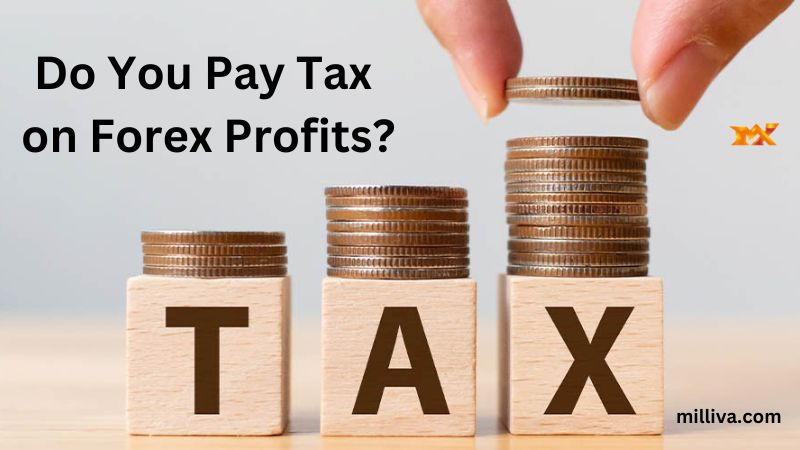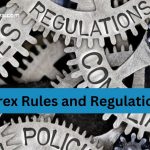Do You Pay Tax on Forex Gains

![]()
Currency tax represents a financial charge for individual Forex Profits, markets trading, or business currency exchanges. Those who dealing in foreign currencies should be aware that the Internal Revenue Service (IRS) has imposed a tax on currency exchange at the dollar value. Hence they should maintain the records properly. In this article let’s see about how to pay tax on Forex gains.
They should also pay taxes on their profit from exchanging currencies. The records should specify the exact exchange rate used for converting foreign currency since the IRS may require this information. US citizens can pay tax on Forex gains as foreign earned income, short time capital gain, long time capital gain, or may be exempt from paying taxes.
US Foreign Tax Exemption and Profits
For all individuals and business with a Forex gain of less than $200, is valid for Forex tax exemption. To avoid wasting resource on paperwork, the IRS has exemption low value currency exchange from tax. Individuals, businesses, their employees do not have to report direct currency exchange of value less than two hundred dollars.
Because of this the individuals are allowed to exchange their currency when holidaying abroad, without any bothering about taxes when converting the foreign currency back into dollars when they return to the US. Canadian citizens also have the same $200 foreign tax exemption.
Taxes on Currency Exchange Profit
Taxes on currency exchange profits represents taxes on foreign earned income. Businesses own by the US citizens, include those base in a foreign country, the income earned is tax at its dollar value on the day it is receive. The exchange rate used should be mention, for each journal entry.
Businesses should use from 2555 to report the foreign income earned in a year. If the businesses is not itemizing its deductions in the tax returns, it can form 2555EZ, shorter.
Currency Markets Tax
Traders on currency markets can trade Forex, futures, options, and need to pay tax. There are different types of exchange and tax options. They are long term capital gains tax, short term gains tax or ordinary tax, combination of long term and short term capital gains tax.
Long-term capital profits tax represents tax that pays traders who hold assets for more than one year. Short term capital gains or ordinary income tax pay all traders who trade options or Forex and hold trades positions for less than one year. The majority of traders pay only short term capital gains tax. Futures traders pay a combination of long term and short term capital gains tax.
How do Day Traders Pay Taxes?
Day traders pay short-term capital gain tax because they hold trade positions for less than one year. The short time capital gain tax has the same rate as ordinary income tax. The most exchange contracts are the short term and taxed at the standard rate for capital gains.
Largely the taxation rate depends on the duration of time for which the individual held the currency. The long term taxation rate would be applicable for the profit, if the currency were kept for more than one year before it was sold.
Tax on Currency Exchange for Business
The transaction gains are taxable, if a company exchange the currency it has at a profits. The tax rates will depend on the currency from which the company has. If the currency is held only for paying expense, it will be tax at the normal income tax rates, even if it hold the currency for several years.
The capital gains tax rates will be applicable, if the business is holding currencies for investment reasons. For currencies held for one year or longer, the long term capital gains tax is applicable, while for a shorter duration, the short term capital gains tax will apply. Investments like stocks, bonds held in foreign currencies are also tax like dollar assets.

Taxation on Your Forex Profits
As an investor, you may be looking to build a diverse portfolio of financial instruments that can net your strong returns over the medium to long term. One such financial instrument you should consider is Forex trading.
Forex trading essentials involves you capitalising on the growth or decline of currencies. Right off the bat, Forex trading in the country is split between trading through register brokers, and foreign, unregulated brokers. So if you are trading through a register broker, the income you earn from your Forex trading will be tax under capital gains tax.
Traders have to pay tax on capital gains trading Forex. When they sell a given security at a higher price than the original cost of purchase. It goes without saying that traders do not have to pay any tax for those trades. Where they have earned no payouts.
Firstly, many countries, including Russia, do not have a separate tax rate for capital gains earnings. Instead, those gains are tax at the same rate as the personal income tax. The next one is the fact those rate, which are shown above represent the maximum capital gains tax rates. In many countries, the effective tax rate on those types of earnings can be much lower. Depending on the total annual income of an individual, as well as on other circumstances.
Reducing Taxable Income with Forex Losses
In many countries, the Forex traders have to pay the capital gains tax on their net income from trading. Traders should report the total annual amount when filling out their tax returns. Instead of paying for every winning trade individually.
There are some countries in the world including New Zealand, Georgia, and Ukraine, who do not have any capital gains tax for trading stocks, commodities or currency pairs. One of the most obvious reasons for this policy is to make these countries more attractive for international traders and investors.
The fact is that there are significant number of individuals who earn most of their income by investing or trading. Consequently, some of them might consider moving to countries. Where there is no capital gains tax and save a massive amount of money in the long term.

Visit us on: www.milliva.com





